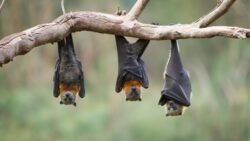Bats are vital to Florida’s ecosystem, acting as natural pest controllers by consuming thousands of insects nightly. However, from April to mid-August, extra care is needed as mother bats give birth and raise their pups. During this bat maternity season, pups are entirely dependent on their mothers and cannot fly. Bats often roost in natural spots like tree hollows but may also choose attics, barns, or sheds. Disturbing or blocking these roosts can trap flightless pups inside, causing harm and violating Florida law, which prohibits the removal or exclusion of bats during this critical period. By understanding bat maternity season and respecting their role in the environment, homeowners can help protect these essential creatures while ensuring harmony with wildlife. By respecting maternity season, we ensure that bat populations, which naturally help manage insect populations, remain healthy and thriving.
A Guide to Bat Maternity Season in Florida
Why Bats Matter to Florida’s Ecosystem
Bats play a pivotal role in maintaining Florida’s delicate environmental balance. Why are they so important?
- Natural Pest Control: A single bat can eat thousands of mosquitoes in one night. This helps reduce the need for chemical pesticides and protects humans, pets, and crops from insect-related harm.
- Pollination and Seed Dispersal: Some species of bats assist in pollinating plants and dispersing seeds, which supports biodiversity and plant regeneration.
- Positive Economic Impact: By limiting crop-damaging insects, bats indirectly support Florida’s agricultural economy.
Simply put, bats are unsung heroes that work tirelessly every night to make Florida a more comfortable and sustainable place to live.
What Not to Do During Bat Maternity Season
While bats are beneficial, having them roost in your attic or shed can cause concern for some homeowners. However, during maternity season, it’s important to know what not to do if you realize bats have taken up residence near your home.
Key Don’ts During Maternity Season
- Don’t Try to Remove Bats: It’s illegal to exclude bats from their roosts in Florida between April and mid-August. Removing them during this time can leave flightless pups trapped and lead to legal consequences for you as a homeowner.
- Don’t Seal Openings: Sealing bats inside a roost unintentionally can create worse problems, including inaccessible young bats that may not survive.
- Don’t Use DIY Repellents: Over-the-counter bat repellents or harmful deterrent methods can injure or stress bats unnecessarily, while also possibly violating local wildlife laws.
Instead, wait until maternity season is over to address any bat issues.
How to Prevent Bats from Roosting in Your Home
If you’d like to avoid bats taking up residence in unwanted spaces, proactive prevention is the key. The good news? Bat-proofing your home is entirely possible with the right approach!
1. Seal Entry Points During the Off-Season
Inspect your home for potential bat entry areas, such as cracks, gaps, or holes in your attic, roofline, or eaves. Install exclusion barriers or seal openings during the months outside of maternity season (late August through March).
2. Secure Vents and Chimneys
Bats are skilled at squeezing through tight spaces. Use mesh wire or specially designed vent covers to secure attic vents, chimneys, and other areas that may serve as entry points.
3. Manage Exterior Features
Habitat near your home can encourage bats to roost nearby:
- Trim overhanging branches to discourage bat access to your roof.
- Remove clutter or debris piles from around your property.
4. Provide Alternate Roosting Options
Consider installing a bat house! A bat house provides a safe space for bats to roost without interfering with your home. Plus, keeping bats nearby means continued natural pest control.
When and How to Seek Professional Help
If you discover that bats are roosting on your property and you’d like to exclude them after maternity season ends, it’s best to work with a licensed wildlife professional. These experts can assess your home, recommend preventive steps, and handle exclusions in a way that’s safe, legal, and humane.
What to Expect After Maternity Season
After mid-August, wildlife professionals can:
- Conduct thorough surveys to locate and confirm the presence of bats.
- Use humane exclusion methods, such as one-way valves that allow bats to leave but not re-enter.
- Ensure your home is sealed properly to prevent future roosting.
Hiring a professional ensures Florida’s bat conservation laws are followed while also protecting your property.
Living with Bats, Not Against Them
Bats don’t have to be a problem for homeowners. With proper timing, awareness and professional help, you can protect your home while supporting these essential creatures.
Prevent roosts before maternity season, avoid disturbances during critical months, and seek professional help for humane exclusions later. Bats play a vital role in Florida’s ecosystem, and with these simple steps, you can keep your home bat-free while contributing to wildlife conservation. Contact a wildlife removal company near you today!


